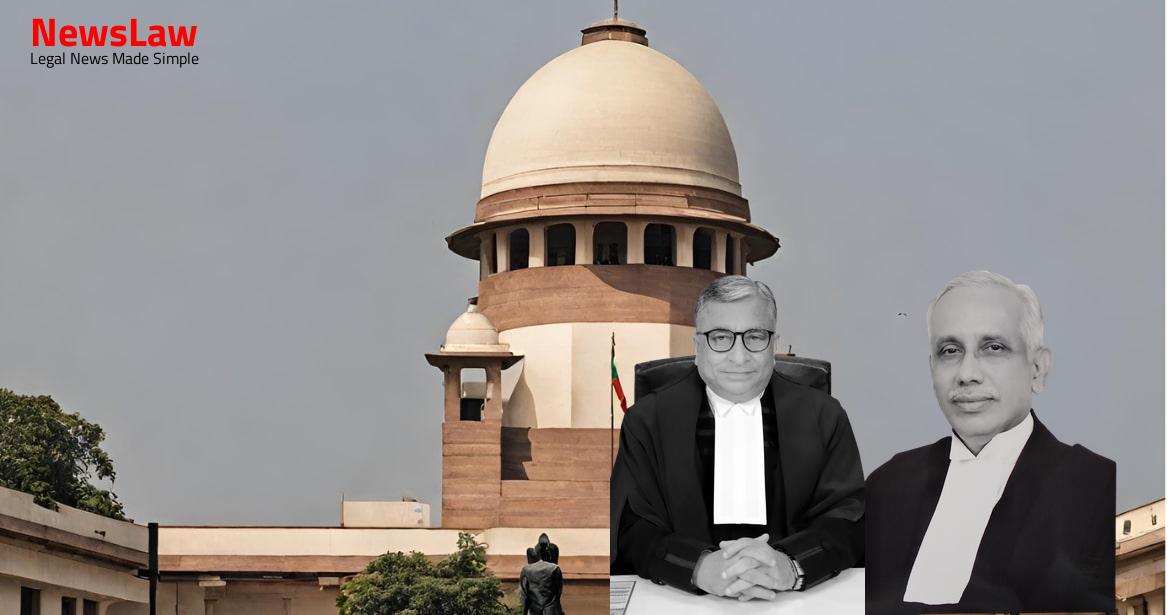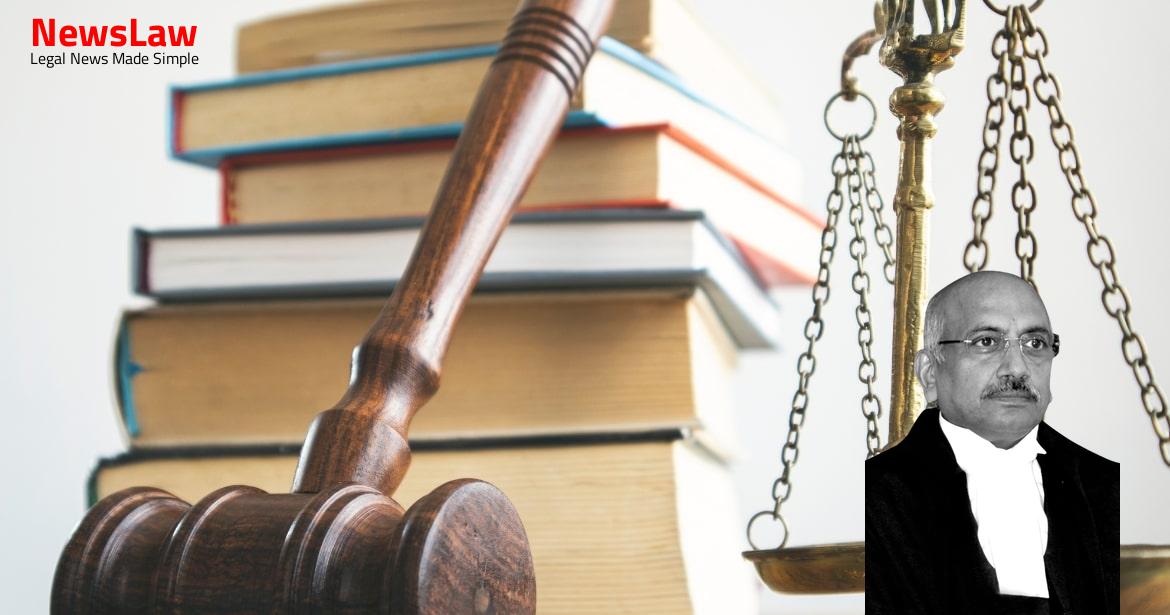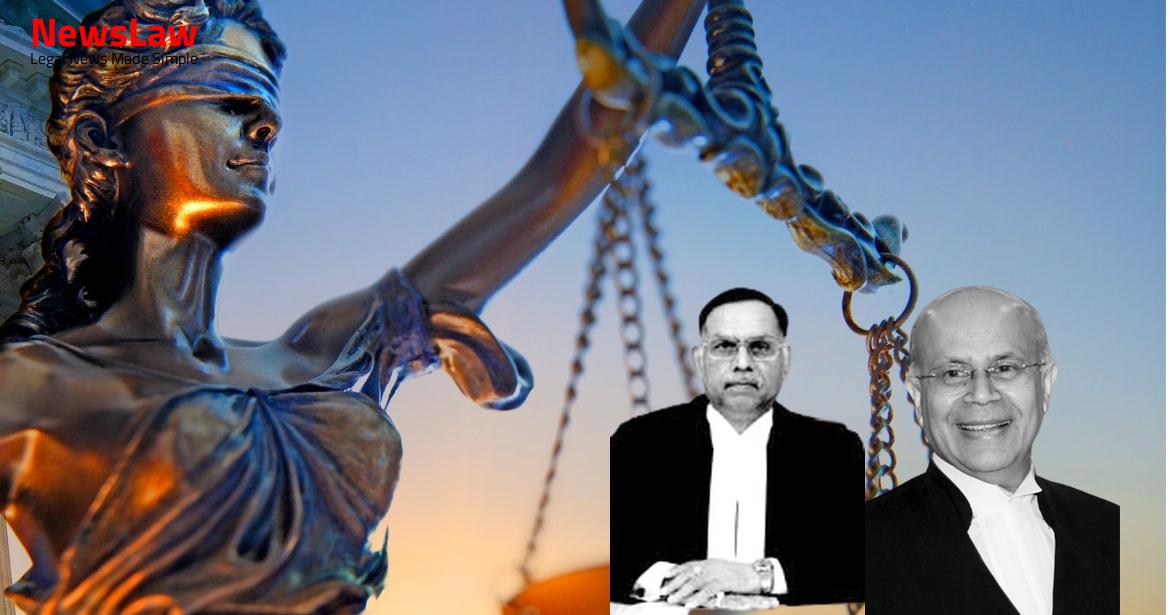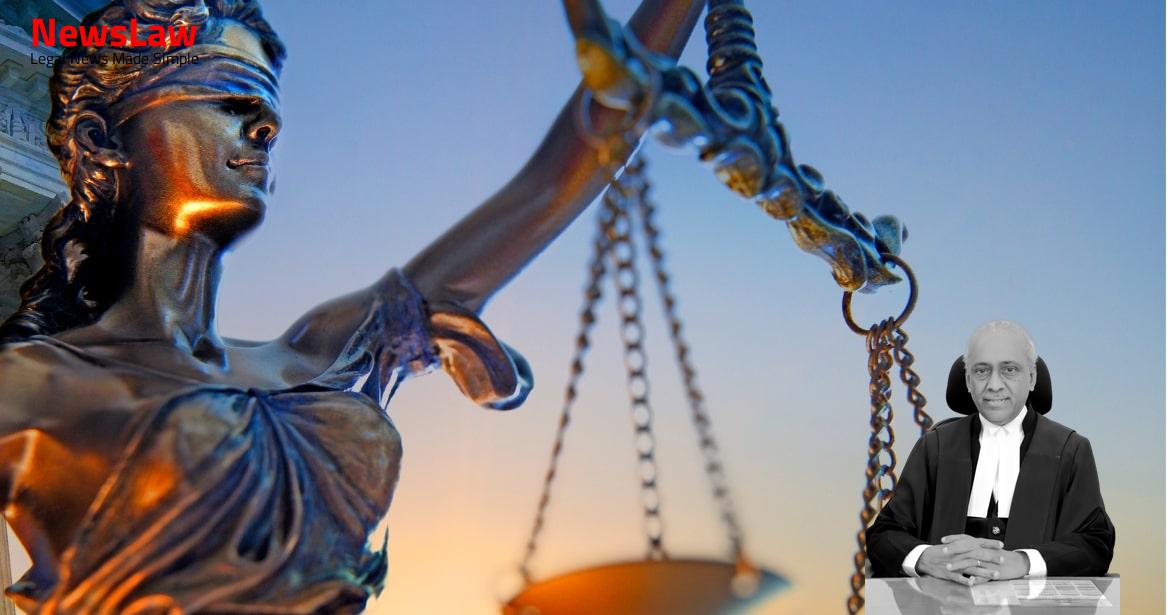Delve into the court’s meticulous legal analysis surrounding the presumption of abetment of suicide in a recent case. The examination of witness testimonies, application of relevant legal sections, and emphasis on establishing guilt beyond reasonable doubt showcase the depth of legal scrutiny in such matters. Discover the significance of evidence and the intricacies of legal provisions in cases involving allegations of suicide abetment.
Facts
- The Trial Court found the Appellants guilty of subjecting the deceased to physical and mental cruelty, leading her to commit suicide.
- The Appellants were convicted under Section 498A and 306 of the IPC.
- They were sentenced to one year of rigorous imprisonment and a fine of Rs. 500/-, as well as two years of rigorous imprisonment and a fine of Rs. 500/-.
- The appeals were filed against the final order and judgment of the High Court of Gujarat at Ahmedabad.
- The High Court upheld the conviction against the Appellants based on the findings of the Trial Court.
- The marriage of Appellant No 1 was solemnized with Tahera (the deceased) on 27.04.1997.
- The deceased was residing with both the appellants after the marriage.
- Appellant No.1 constantly asked the deceased to bring Rs.25,000 from her father (PW-1) to purchase buffaloes for milk business.
- The case was registered as Sessions Case No 92 of 1998 and was made over to the Learned Additional Sessions Judge for trial.
- The deceased committed suicide on 14.12.1997 due to continuous mental and physical cruelty by the appellants in a span of 8 months.
- Charges were framed against the appellants for offences under Section 498A and 306 read with Section 114 of the IPC.
- The appellants pleaded not guilty and claimed to be tried.
- The prosecution examined seven witnesses and all incriminating evidence was presented to the appellants during recording of their statement under Section 313 of the CrPC.
- The appellants denied the prosecution’s case in their statements.
- The appellants appealed before the High Court, contending that there was no demand for money by Appellant No 1, but rather a request for a loan to purchase buffaloes.
- Appellant No.1 started beating the deceased due to poor financial condition of PW-1, while Appellant No 2 quarreled with her for not being able to cook or do household work properly.
Also Read: Balancing Civil Disputes and Criminal Offenses
Arguments
- The appellants contended that the deceased was under medical treatment for a mental illness.
- They argued that only close relatives were examined as witnesses, with no independent witnesses.
- There was no demand for money by the appellant No.1, who was seeking a loan for a legitimate purpose.
- The defense lawyer strongly argued that the conviction was not justified and the case was doubtful.
- The defense emphasized that the appellants were not present at the time of the incident.
- However, the High Court found evidence of mental and physical cruelty by the appellants towards the deceased, leading to her suicide.
- The conviction under Section 498-A IPC and Section 306 IPC was upheld by the High Court.
- The accused have appealed against the conviction and sentence.
- Ms. Deepanwita Priyanaka, counsel for the State, argued for no interference based on concurrent findings of lower courts.
- Appellants’ counsel contended that the deceased’s mental illness and treatment could have led to suicide.
- Reference to the case of Gurjit Singh Vs. State of Punjab was deemed irrelevant and distinguishable.
- Argument raised on lack of independent witnesses and reliance on relatives, making the prosecution case doubtful.
- Claim made that all elements for conviction under Section 306 IPC are met with the help of Section 113-A of the Evidence Act.
- The court reviewed the submissions, the impugned judgment, and witness testimonies.
- Suicidal death of the deceased within eight months of marriage is acknowledged.
- Section 113-A of the Evidence Act on presumption of abetment of suicide by a married woman within seven years of marriage is cited.
Also Read: Legal Analysis of Abetment of Suicide Allegations
Analysis
- Explanation added to Section 113-A of the Evidence Act defines ‘cruelty’ as per Section 498-A of the IPC.
- Section 498-A of the IPC addresses the punishment for subjecting a woman to cruelty by her husband or his relatives.
- Section 306 of the IPC deals with the punishment for abetment of suicide.
- The phrase ‘May presume’ in Section 113-A is defined in Section 4 of the Evidence Act.
- Section 107 of the IPC describes the offence of abetment.
- Section 4 of the Evidence Act defines ‘may presume’ as considering a fact as proved unless disproved.
- In the case at hand, evidence clearly establishes the offence of cruelty or harassment to the deceased.
- For Section 113-A to apply: woman must have committed suicide, cruelty must be established, and it must have occurred within seven years of marriage.
- The prosecution successfully established the charge of cruelty as per Section 498-A IPC.
- There was no evidence to prove that the accused instigated the deceased to commit suicide.
- The charge did not mention that the deceased was driven to suicide due to harassment or abetted by the accused.
- The witnesses’ consistency and lack of contradictions inspired confidence in their testimonies.
- The accused pressuring the deceased to bring money led to harassment and subsequent suicide.
- The accused failed to rebut the presumption of abetment under Section 113-A of the Evidence Act.
- Interested witnesses’ testimonies, though related, were found trustworthy and reliable.
- The absence of evidence for mental illness or treatment prior to suicide was noted.
- The court’s caution in evaluating witness evidence was highlighted.
- The charge against the accused focused on cruelty leading to suicide, not abetment.
- The deceased’s suicide due to pesticide consumption was confirmed.
- The lack of independent witnesses in domestic cruelty cases was acknowledged.
- The presumption of suicide abetment was not deemed irrefutable.
- Insistence on evidence from the defence regarding alleged illness before marriage was emphasized.
- The foundation for presumption under Section 113-A was deemed solid.
- The case involved the death of the deceased in suspicious circumstances while in the custody of the appellant within her matrimonial home.
- Various cases and observations from past judgments were cited to emphasize that the evidence given by witnesses, even if they are family members, should not be automatically discarded as partisan or unreliable.
- The presumption of abetment under Section 113-A of the Evidence Act was discussed in relation to cases of cruelty and dowry death.
- The judgments highlighted that relationships should not affect the credibility of a witness and that the mere fact of being a relative does not undermine the truthfulness of their testimony.
- It was noted that each case must be considered based on its own facts, and a careful analysis of evidence is required before discarding it solely based on the relationship of the witness to the deceased.
- Both Trial Court and High Court extensively reviewed the evidence
- Both courts concluded that prosecution proved case against appellants beyond reasonable doubt
- No reason found to interfere with the impugned judgment
- After reviewing facts and reasonings, no different view is taken
Also Read: Assessment of Loss of Earning Capacity in Motor Accident Claim
Decision
- The appeals have been dismissed.
- The judgment on the specific part (RPC) stands.
Case Title: GUMANSINH @ LALO @ RAJU BHIKHABHAI CHAUHAN Vs. THE STATE OF GUJARAT (2021 INSC 443)
Case Number: Crl.A. No.-000940-000941 / 2021



